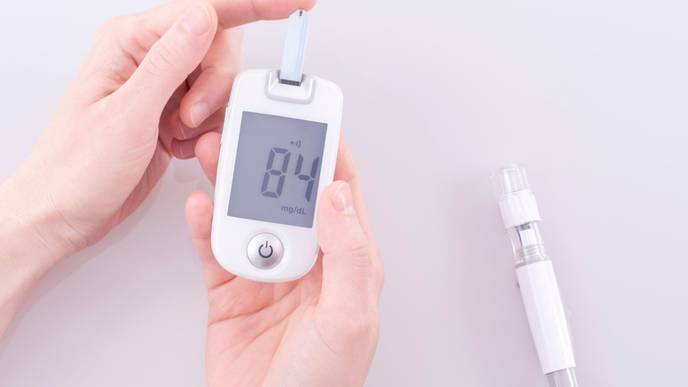ReachMD
Be part of the knowledge.™Danuglipron Reduces HbA1C Levels, Fasting Plasma Glucose in Type 2 Diabetes

Danuglipron, an orally-administered, glucagon-like peptide 1 receptor (GLP-1R) agonist, can significantly reduce hemoglobin (Hb) A1c levels and fasting plasma glucose (FPG) in individuals with type 2 diabetes (T2D), according to research published in JAMA Network Open. The novel treatment may be a viable replacement for subcutaneous injections, which are often inconvenient and unsuitable for some patients, the report suggests.
Researchers performed a phase 2b, double-blind, placebo-controlled clinical trial which included adults with T2D (N=411; mean age 58.6 years; 51% men) that was inadequately controlled by diet and exercise. Most study participants concomitantly used metformin (91%). Investigators randomly assigned patients to placebo or danuglipron treatment, with target doses of 2.5, 10, 40, 80, or 120 mg twice daily for a 16-week duration. Dosages of 40 mg and above were titrated up to the required dose in a period of up to 6 weeks.
The primary endpoint was the change in HbA1c level at the 16-week study conclusion compared with baseline. Secondary endpoints were HbA1c changes at other time points (weeks 2, 4, 6, 8, and 12), the proportion of the participants who achieved HbA1c levels of less than 7%, and body weight changes.
Overall, all danuglipron doses demonstrated an ability to significantly reduce HbA1c levels at 16 weeks (least squares [LS] mean change range, −0.49% to −1.18%) compared with placebo treatment (LS mean change, −0.02%). With only 1 exception, all doses significantly reduced HbA1c levels at all time points throughout the investigation, according to the report. FPG was also significantly reduced with all danuglipron doses at week 16 compared with placebo (LS mean difference range, −14.12 to −33.24 mg/dL).
“
This phase 2b randomized clinical trial of danuglipron, a novel, oral, small molecule GLP-1R agonist, demonstrated glycemic and body weight efficacy in a range of doses during a short but clinically relevant timeframe in adults with T2D.
Danuglipron dosage affected weight loss, the report shows. Significant weight reductions were noted at week 16 in individuals treated with the twice-daily 80 mg (LS mean difference, -2.04 kg; 90% CI, −3.01 to −1.07 kg) and twice-daily 120 mg doses (LS mean difference, −4.17 kg; 90% CI, -5.15 to -3.18 kg) compared with placebo. However, weight loss was not statistically significant at lower dosages.
Treatment emergent adverse events (TEAEs) were present in 224 (55%) individuals treated with danuglipron compared with 48% of participants receiving placebo therapy. Most TEAEs were mild (68%), and only 3% of participants experienced serious TEAEs. As with other GLP1-R agonists, most adverse events were gastrointestinal in nature and include nausea, vomiting, and diarrhea.
“This phase 2b randomized clinical trial of danuglipron, a novel, oral, small molecule GLP-1R agonist, demonstrated glycemic and body weight efficacy in a range of doses during a short but clinically relevant timeframe in adults with T2D,” according to the study authors. “The safety and efficacy profile of danuglipron was in line with the peptidic GLP-1R agonists and without fasting restrictions.”
Study limitations include a short study duration and rapid dose escalation, which may have affected tolerability assessment.
Facebook Comments